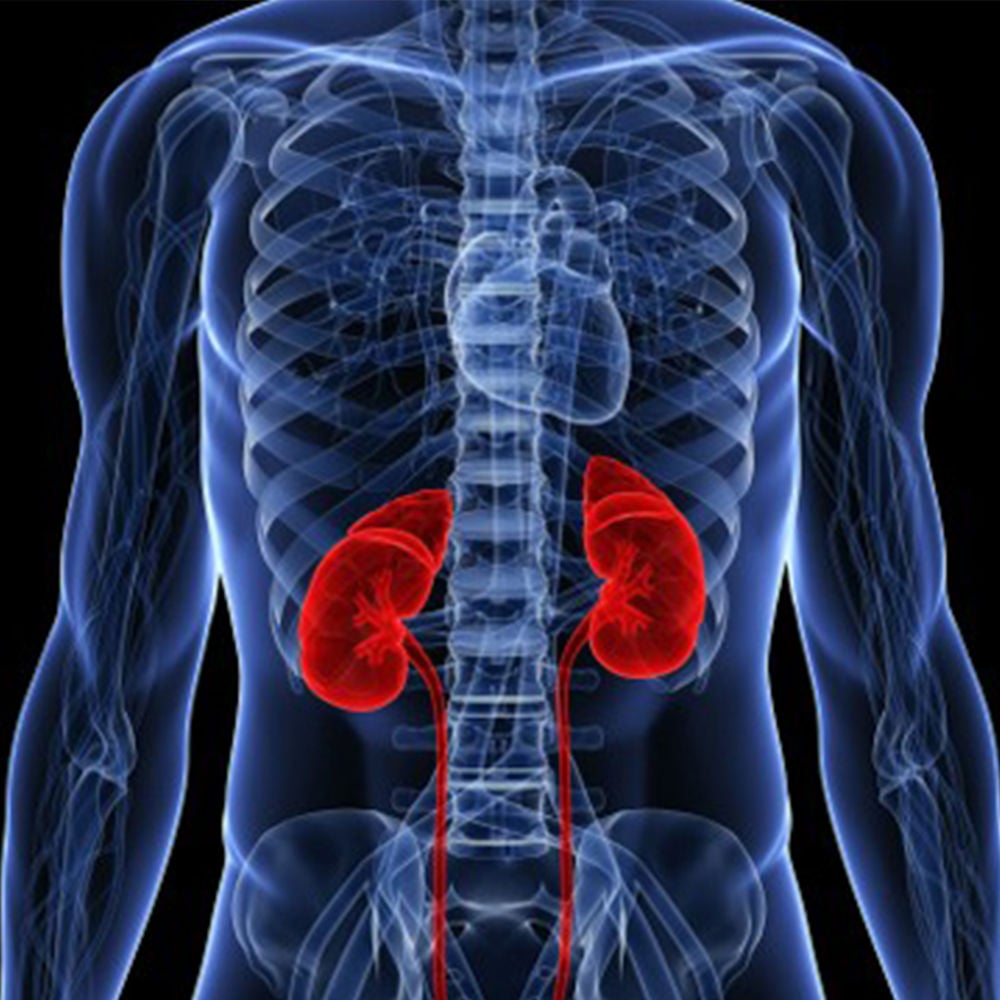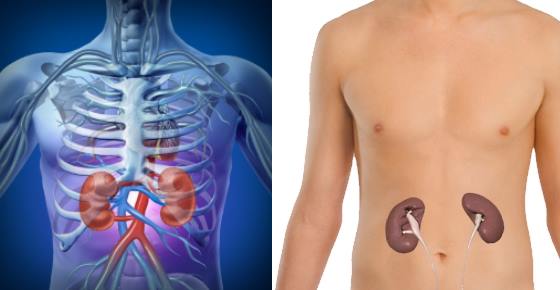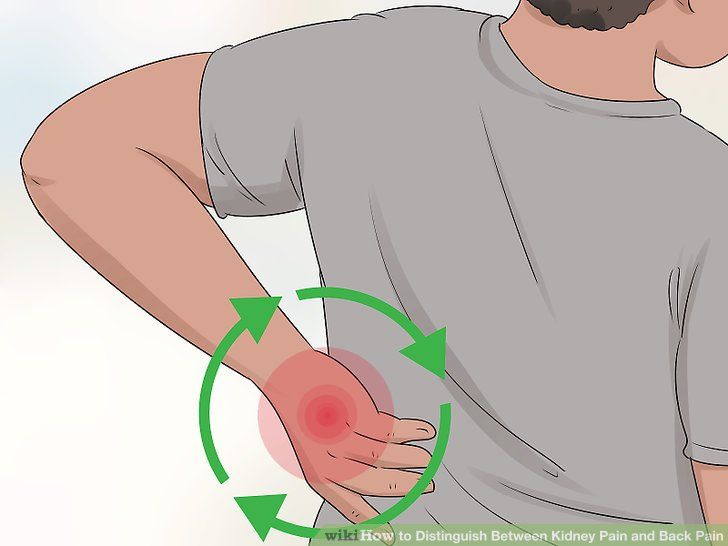How To Diagnose Appendicitis
Its important to diagnose appendicitis as it is a medical emergency. Usually, a doctor will find the exact location of the appendix on your right side and perform some tests.
The doctor will push on the area between your right hip bone and belly button to see if there is tenderness. Doctors will also check rebound tenderness this is when sharp pains are felt when pressure from the affected area is quickly released.
In some cases, doctors may take a blood test to check your white blood cell count or they may ask you to give a urine sample to check for red blood cells, white blood cells, and bacteria in urine. X-rays, CT scans, and ultrasound are other ways to diagnose appendicitis.
How To Keep Your Kidneys Healthy
To avoid symptoms of kidney problems there are several things you should do according to National Institute of Diabetes and Digestive and Kidney Diseases .
1. Keep your blood glucose in check, especially if you have diabetes.
2. Maintain a healthy blood pressure.
3. Eat healthy mealsâIf you are already displaying symptoms of kidney problems, avoid a diet high in protein, fat, sodium, and potassium.
4. Have yearly tests to ensure your kidneys are functioning properly
5. Avoid painkillers unless necessary as they can damage your kidneys. Nonsteroidal anti-inflammatory drugs like ibuprofen and naproxen are especially bad.
6. Contact your doctor immediately if you think you have a bladder or kidney infection.
How Do My Kidneys Work
Each of your kidneys is made up of about a million filtering units called nephrons. Each nephron includes a filter, called the glomerulus, and a tubule. The nephrons work through a two-step process: the glomerulus filters your blood, and the tubule returns needed substances to your blood and removes wastes.
Also Check: Grapes And Kidney Stones
Kidney And Flank Pain Causes
A number of different infections or injuries can cause kidney or flank pain. The most common causes include:
- Kidney stones: Masses made up of crystals that form in your urine and build up in your kidneys that can cause severe pain, especially during urination. They can be passed manually or, in more serious cases, removed surgically.
- Pyelonephritis An infection caused by bacteria traveling up from the bladder or from the blood into the kidneys.
- Polycystic kidney disease : A genetic disease in which normal kidney tissue is replaced by cysts, PKD can cause the kidney to stop working.
- Kidney infarction: A rare condition in which kidney blood flow is disrupted. This can lead to acute kidney injury, decreased kidney function, kidney disease, and death.
- Hemorrhage of the kidney: A bleed in the kidney, possible from multiple causes.
- Kidney canceror tumor: Benign or cancerous masses in the kidney. Kidney cancer is found most often in older adults, with more men affected than women.
- Renal vein thrombosis: A clot that develops in the vein that drains blood from the kidneys.
In addition to kidney problems, upper back and side pain also can be caused by physical injury, arthritis, or gallbladder or gastrointestinal diseases. Its important to know when to seek care.
What Happens If You Have Kidney Disease

Kidney disease can be treated. The sooner you know you have kidney disease, the sooner you can get treatment to help delay or prevent kidney failure. Treating kidney disease may also help prevent heart disease.
Treatment goals are to:
- If you smoke, take steps to quit.
- Take medicines the way your provider tells you to.
Don’t Miss: Does Red Wine Cause Kidney Stones
What Clinical Trials Are Open
Clinical trials that are currently open and are recruiting can be viewed at www.ClinicalTrials.gov.
This content is provided as a service of the National Institute of Diabetes and Digestive and Kidney Diseases, part of the National Institutes of Health. The NIDDK translates and disseminates research findings to increase knowledge and understanding about health and disease among patients, health professionals, and the public. Content produced by the NIDDK is carefully reviewed by NIDDK scientists and other experts.
Signs Of Kidney Disease
Don’t Miss: Can You Have 4 Kidneys
What Causes Kidney Malfunction
A major culprit of kidney problems is an acidic diet . A brand-new study sheds light on the renal problems that can be caused by a high-acid, meat-rich diet.
The study followed 1,500 people with kidney disease for a period of 14 years. Participants who ate a diet high in meat came very close to experiencing complete kidney failure, while those who ate more fruits and vegetables did not even come close to kidney failure. Researchers estimate that an acidic diet can make it three times more likely for your kidneys to fail.1
Says lead study author Dr. Tanushree Banejee,
Patients with chronic kidney disease may want to pay more attention to diet consumption of acid rich foods to reduce progression to kidney failuredialysis treatmentsmay be avoided by adopting a more healthy diet that is rich in fruits and vegetables.1
Evaluation And Treatment Of Flank Pain
After noting symptoms, the doctor examines the person and usually does a urinalysis to check for red blood cells or excess white blood cells. White blood cells in the urine suggest an infection. If an infection is suspected, a urine culture is usually done. A person with very severe, cramping pain and blood in the urine is very likely to have a kidney stone. A person with milder, steady pain, tenderness when the doctor taps over one kidney, fever, and excess white blood cells in the urine is likely to have a kidney infection.
If a kidney stone is suspected, the doctor often does computed tomography or ultrasonography to determine whether a stone is the cause, the size and location of the stone, and whether it significantly blocks urine flow. An intravenous contrast agent is not used for the CT scan. If the doctor is not sure of the cause of pain, often CT that uses an intravenous contrast agent or another imaging test is done.
The underlying disorder is treated. Mild pain can be relieved by taking acetaminophen or nonsteroidal anti-inflammatory drugs . Pain from kidney stones may be severe and may require use of intravenous or oral opioids.
Also Check: What Laxative Is Safe For Kidneys
Location Of Your Kidneys
Kidneys are two organs that are shaped like a bean on either side of the spine. They are located below the rib cage, behind the abdomen, and under the liver. The right kidney sits a bit lower than the left one as the biggest part of the liver is on the right side of the abdomen.
Most problems or infections with your kidney cause middle back pain or flank pain. However, the pain is not always felt where the kidneys are located. According to Medicine Net, flank or renal pain can be felt anywhere between your lowest ribs and your buttocks. In some cases, the pain may radiate to your abdominal area.
The pain can be felt in just the right or left side of the back, depending on its underlying cause. But sometimes, kidney pain may affect both sides of your back. Although it can be hard to distinguish between back pain and kidney pain, kidney pain usually comes with other symptoms.
Less Common Warning Signs Of Appendicitis
Some cases of appendicitis have less common symptoms. According to Dr. Mary Lowth, some peoples appendix is not in the usual place. This means that any pain associated with appendicitis will be felt around the right hip joint or lower down in the groin.10
Other warning signs of appendicitis include:
- Pain that suddenly starts in the lower right side of your abdomen.
- Mild pain that only becomes severe when the appendix ruptures.
- A deep abdominal aching pain that develops more slowly.
Even with these less-typical appendicitis symptoms, you will still have a fever and nausea.
Don’t Miss: Can You Have 4 Kidneys
How Is Kidney Pain Treated
Treatment of kidney pain depends on what condition is causing it. In order to pinpoint a cause, a number of tools are available to help your doctor make a diagnosis:
- Urinalysis: Checks for the presence of blood, excess white blood cells , proteins, and certain chemicals that are linked to various kidney disorders.
- Imaging tests:Ultrasound or a CT scan provides an image of the physical structure of the kidneys and urinary tract, sees if stones are present, and helps determine if blood flow is adequate.
Fatigue Being Tired All Of The Time

Why this happens:
Healthy kidneys make a hormone called erythropoietin , or EPO, that tells your body to make oxygen-carrying red blood cells. As the kidneys fail, they make less EPO. With fewer red blood cells to carry oxygen, your muscles and brain tire very quickly. This is anemia, and it can be treated.
What patients said:
I was constantly exhausted and didn’t have any pep or anything.
I would sleep a lot. I’d come home from work and get right in that bed.
Also Check: Seltzer Kidney Stones
Feeling Faint Dizzy Or Weak
Why this happens:
Anemia related to kidney failure means that your brain is not getting enough oxygen. This can lead to feeling faint, dizzy, or weak.
What patients said:
I was always tired and dizzy.
It got to the point, like, I used to be at work, and all of the sudden I’d start getting dizzy. So I was thinking maybe it was my blood pressure or else diabetes was going bad. That’s what was on my mind.
What Is The Function Of The Kidneys
The excess waste products and excess fluid are removed when the kidneys produce urine that is excreted from the body. Moreover, the kidneys play an important role in the regulation of the body’s salt, potassium, and acid content.
The kidneys also produce hormones that stimulate the production of red blood cells that help regulate blood pressure and help control calcium and electrolyte metabolism in the body.
Also Check: Does Red Wine Cause Kidney Stones
Feeling Tired Or Sluggish During The Day
Everyone has a day when they feel tired maybe you didnt get enough sleep, or ate the wrong foods, or some other temporary factors are at play. But sometimes, fatigue is caused by lack of a hormone called erythropoietin, or EPO. The main function of EPO is to stimulate the production of red blood cells, and red blood cells carry energizing oxygen to cells throughout your body.
Stressed kidneys do not produce enough EPO, thereby reducing the number of red blood cells and making you feel weak and tired out.
Telltale Signs You Have A Kidney Stone
Most people have two kidneys located behind their abdominal organs along the middle of their back. The purpose of your kidneys is to filter blood and send any waste thats collected into your urine.
Sometimes, these waste products build up and form small, hard deposits called kidney stones. Stones develop inside kidneys, but they exit the body through the urinary tract.
Because the ureter is small, passing a stone can cause complications inside the urinary tract, as well as a range of unpleasant symptoms from abdominal pain to nausea. About 1 in 10 Americans will experience at least one kidney stone in their lifetime, but learning to recognize the telltale signs of a kidney stone isnt always easy especially if youve never had one.
Our team at Advanced Urology in Redondo Beach, Culver City, and Los Angeles, California, is here to help. While small stones might pass without your knowledge, larger stones can cause excruciating pain. Make an appointment at Advanced Urology if you have
You May Like: Is Mio Bad For Your Kidneys
When To See Your Doctor
Kidney pain is almost always a sign that something is wrong with your kidney. You should see your doctor as soon as possible to determine whats causing your pain.
If the condition that has caused kidney pain isnt treated promptly and appropriately, your kidneys can stop working, which is called kidney failure.
Its especially important to see your doctor right away if your pain is severe and started suddenly because this is often caused by a serious problem such as renal vein thrombosis or bleeding into your kidney that needs emergency treatment.
Causes Of Kidney Pain
Kidney pain has many possible causes. These organs are connected to others like your bladder and ureters, where you store and get rid of urine.
Kidney stones. Intense, sudden, stabbing pain may be a kidney stone. These are mineral deposits that can grow large enough to block a ureter, a tube that connects your kidney and bladder. If that happens, you’ll feel sharp pain or cramps in your back or side. It can also spread out to your groin. As you try to pee out the stone, you might feel waves of pain.
Kidney infection. Also called pyelonephritis, this infection could cause discomfort in one or both kidneys. You may feel pain in your back, in your side or both sides under your ribs, or in your groin. You’ll also have a fever. Urinary tract infections also cause discomfort in this organ.
Kidney swelling. This condition, called hydronephrosis, can happen if your kidneys are blocked. Your urine can’t drain the way it should and builds up in your kidneys. This can happen in one or both kidneys and sometimes it causes pain.
Kidney cysts. You may not feel a simple kidney cyst until it grows larger. Once it gets big, you might feel a dull pain in your side or back, or feel pain in the upper part of your belly.
Polycystic kidney disease. This genetic disease causes many cysts to grow in your kidneys. They may cause you to feel a pain in your back or side.
Recommended Reading: Wine Kidney Stones
How To Tell If Its Kidney Pain Or Back Pain
Your kidneys are located just below the ribcage, with each kidney positioned on either side of your spine. Kidneys help to filter toxins and extra fluids from the body to ensure the rest of your body works normally. Common causes of kidney pain include UTIs, kidney infections, and kidney stones. Because your kidneys rest against your back muscles, it can sometimes be difficult to differentiate kidney pain from back pain. To help you distinguish between the two, were breaking down the signs and symptoms of how to tell if its back pain or kidney pain.
When To Contact A Doctor

A person who is experiencing kidney pain should contact a doctor as soon as possible to find out what is causing it.
People must contact a doctor to diagnose and treat kidney pain. Receiving the correct treatment ensures that the kidneys do not become damaged, which can lead to kidney failure.
Doctors may order tests such as:
- urine tests, which can help them identify any infections
- imaging tests, such as CT or ultrasound scans
- cytology, which can help them identify cancer cells in the urine
Also Check: Is Celery Juice Good For Kidney Disease
Shortness Of Breath After Very Little Effort
Why this happens:
Being short of breath can be related to the kidneys in two ways. First, extra fluid in the body can build up in the lungs. And second, anemia can leave your body oxygen-starved and short of breath.
What patients said:
At the times when I get the shortness of breath, it’s alarming to me. It just fears me. I think maybe I might fall or something so I usually go sit down for awhile.
I couldn’t sleep at night. I couldn’t catch my breath, like I was drowning or something. And, the bloating, can’t breathe, can’t walk anywhere. It was bad.
Kidney Pain Definition And Facts
- The function and purpose of the kidneys are to remove excess fluid and waste products from the body.
- The kidneys are organs that are located in the upper abdominal area against the back muscles on both the left and right side of the body.
- Kidney pain and back pain can be difficult to distinguish, but kidney pain is usually deeper and higher in the and back located under the ribs while the muscle pain with common back injury tends to be lower in the back.
- Common causes of kidney pain are mainly urinary tract infections, kidney infections, and kidney stones. However, there are many other causes of kidney pain, including penetrating and blunt trauma that can result in a “lacerated kidney.”
- If a woman is pregnant and has kidney pain, she should contact her doctor.
- Symptoms of kidney pain may include
- vomiting.
Also Check: What Std Messes With Your Kidneys